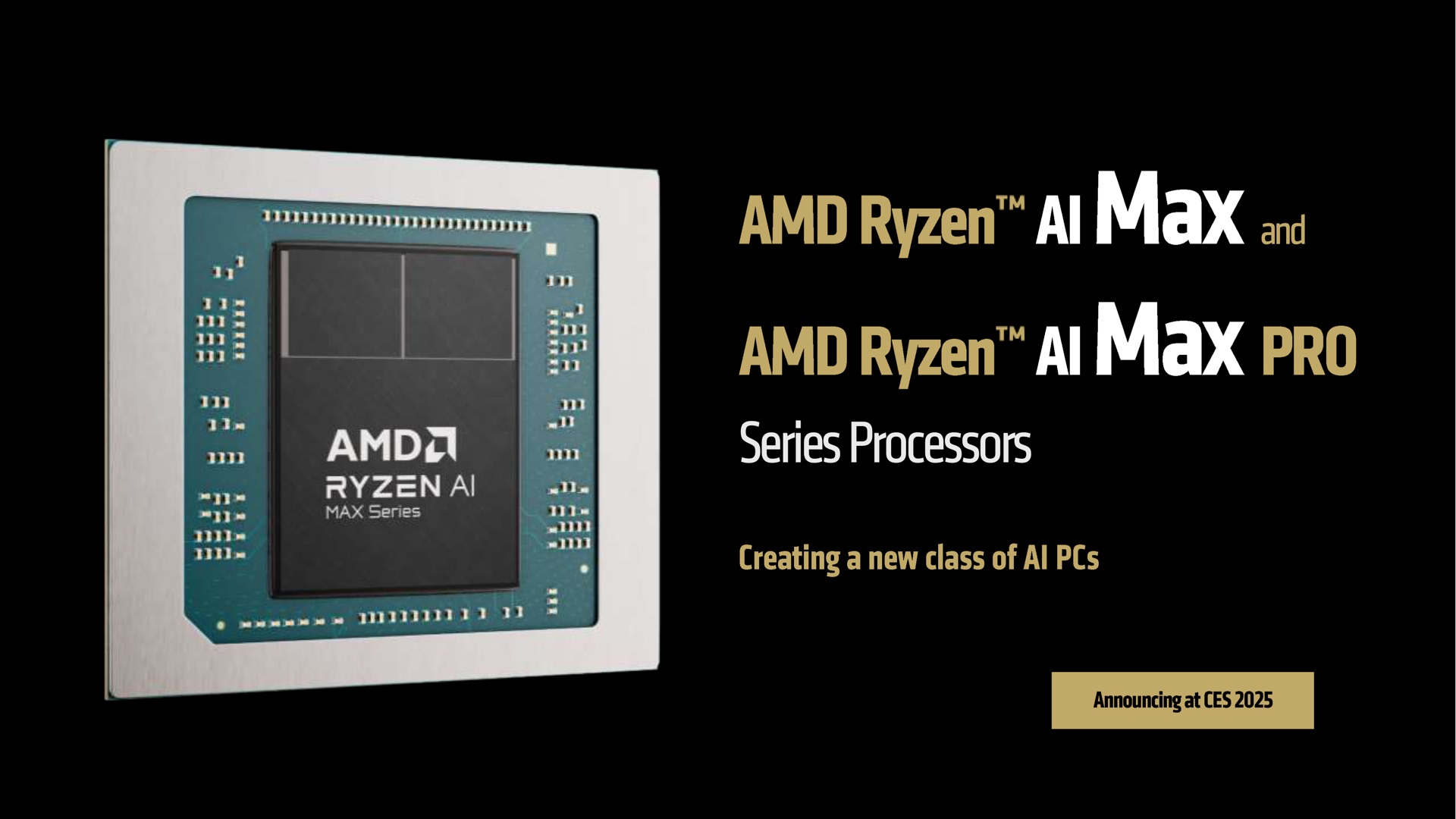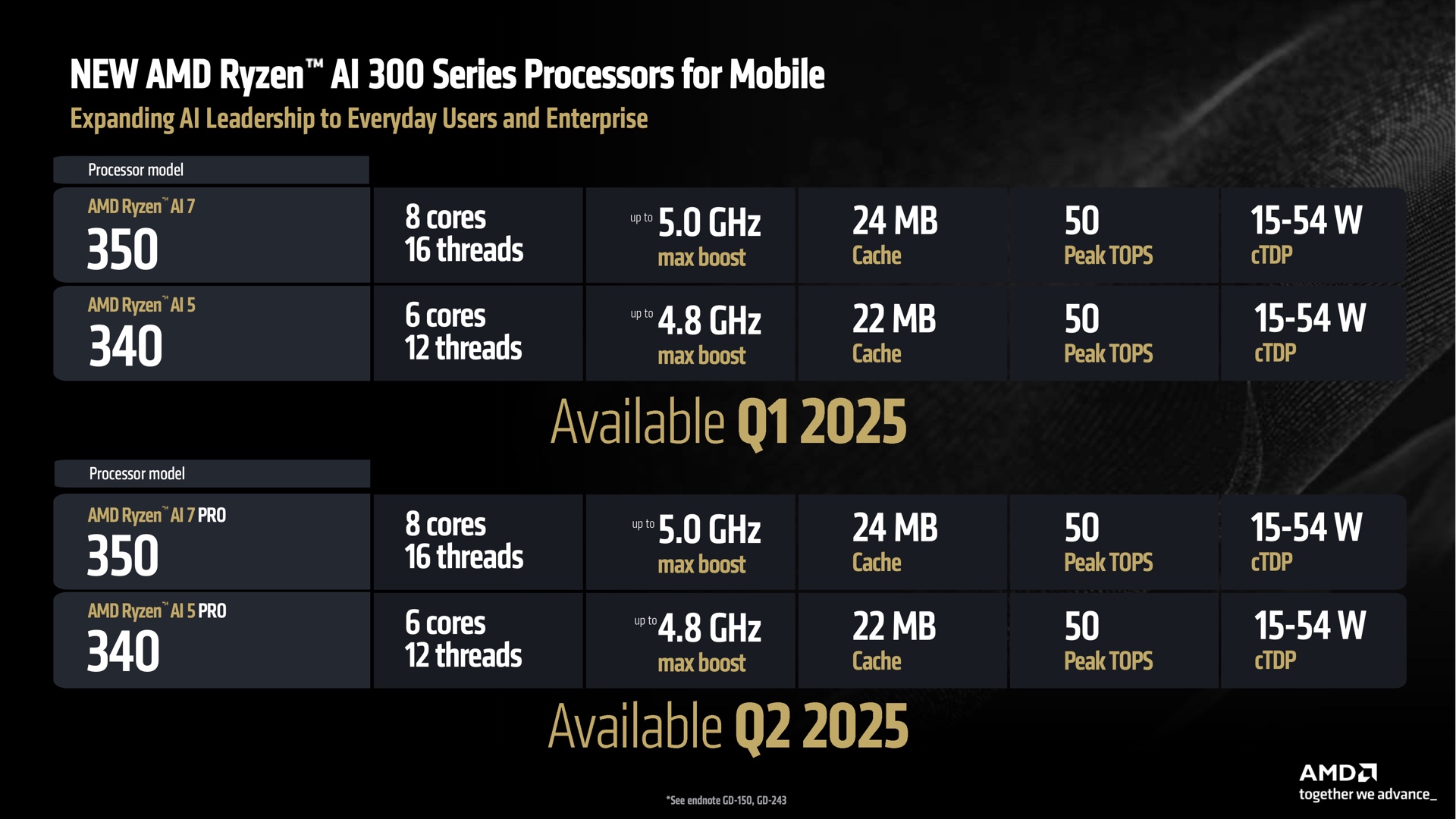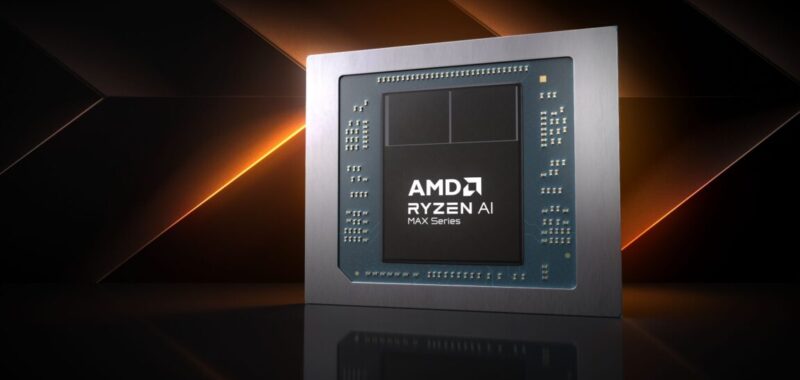AMD’s CES announcements include a tease about next-gen graphics cards, a new flagship desktop CPU, and a modest refresh of its processors for handheld gaming PCs. But the company’s largest announcement, by volume, is about laptop processors.
Today the company is expanding the Ryzen AI 300 lineup with a batch of updated high-end chips with up to 16 CPU cores and some midrange options for cheaper Copilot+ PCs. AMD has repackaged some of its high-end desktop chips for gaming laptops, including the first Ryzen laptop CPU with 3D V-Cache enabled. And there’s also a new-in-name-only Ryzen 200 series, another repackaging of familiar silicon to address lower-budget laptops.
Ryzen AI 300 is back, along with high-end Max and Max+ versions

Ryzen AI is back, with Max and Max+ versions that include huge integrated GPUs.
Credit:
AMD
We came away largely impressed by the initial Ryzen AI 300 processors in August 2024, and new processors being announced today expand the lineup upward and downward.
AMD is announcing the Ryzen AI 7 350 and Ryzen AI 5 340 today, along with identically specced Pro versions of the same chips with a handful of extra features for large businesses and other organizations.

The 350 includes eight CPU cores split evenly between large Zen 5 cores and smaller, slower but more efficient Zen 5C cores, plus a Radeon 860M with eight integrated graphics cores (down from a peak of 16 for the Ryzen AI 9). The 340 has six CPU cores, again split evenly between Zen 5 and Zen 5C, and a Radeon 840M with four graphics cores. But both have the same 50 TOPS NPUs as the higher-end Ryzen AI chips, qualifying both for the Copilot+ label.
For consumers, AMD is launching three high-end chips across the new “Ryzen AI Max+” and “Ryzen AI Max” families. Compared to the existing Strix Point-based Ryzen AI processors, Ryzen AI Max+ and Max include more CPU cores, and all of their cores are higher-performing Zen 5 cores, with no Zen 5C cores mixed in. The integrated graphics also get significantly more powerful, with as many as 40 cores built in—these chips seem to be destined for larger thin-and-light systems that could benefit from more power but don’t want to make room for a dedicated GPU.

